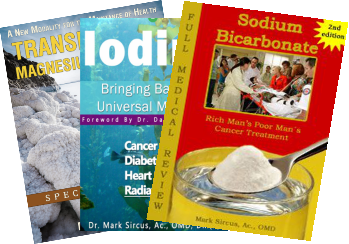This is supposed to be good news but is it? According to mainstream medicine there is currently no drug treatments on the market that can slow the progression of Alzheimer’s disease but the pharmaceutical company making aducanumab believes that their new medication could soon be a groundbreaking treatment for dementia patients.
Aducanumab was left for dead in March after an early analysis of clinical-trial results suggested that it had no significant effects on clinical symptoms such as memory loss and disorientation.
Biogen, based in Cambridge, Massachusetts, announced on 22 October that it would again seek approval from the US Food and Drug Administration after evaluating new data from the same studies that suggested the drug was a total flop. If it was not obvious the first time around why should it be the second?
Of course, like all pharmaceuticals, mild to moderate side-effects including headache, diarrhea, and dizziness were reported with no reporting on severe or long term side-effects.
The New York Times published an article about a study from the New England Journal of Medicine titled Alzheimer’s Drugs Offer No Help, Study Finds. “The drugs most commonly used to soothe agitation and aggression in people with Alzheimer’s disease are no more effective than placebos for most patients, and put them at risk of serious side effects, including confusion, sleepiness and Parkinson’s disease-like symptoms, researchers are reporting.”
Dr. Thomas R. Insel, director of the National Institute of Mental Health, said, “What this study showed is that these drugs are clearly not the answer; they may be helpful for a minority of patients but we need to come up with better medications.”
Pharmaceutical Companies Are Not Interested In Anything That Works
The BBC reported that a man has told of how he “got his mum back” after a diagnosis of Alzheimer’s disease, in part, by getting her to follow a diet high in berries and leafy green vegetables. Science Daily reported that a diet containing compounds found in green tea and carrots reversed Alzheimer’s-like symptoms in mice genetically programmed to develop the disease.
A study by researchers at Rush University Medical Center in Chicago shows a diet plan they developed — appropriately called the MIND diet — may reduce the risk of developing Alzheimer’s disease by as much as 53 .... The last thing the FDA and Biogen want you to know is information like this.
At Heart Alzheimer’s is Mitochondrial Dysfunction
Many avoid a simple fact—at the heart of Alzheimer’s is mitochondrial dysfunction. This makes logical sense when we consider that our mitochondria are instrumental in producing the energy currency in our body, and without energy, nothing will work properly, especially the brain, which needs a lot of this energy.
“Damage to mitochondria is now understood to play a role in the path... such as schizophrenia, bipolar disease, dementia, Alzheimer’s disease, epilepsy, migraine headaches, strokes, neuropathic pain, Parkinson’s disease, ataxia, transient ischemic attack, cardiomyopathy, coronary artery disease, chronic fatigue syndrome, fibromyalgia, retinitis pigmentosa, diabetes, hepatitis C, and primary biliary cirrhosis. Medications have now emerged as a major cause of mitochondrial damage, which may explain many adverse effects. All classes of psychotropic drugs have been documented to damage mitochondria, as have statin medications, analgesics such as acetaminophen, and many others.”
Treating Alzheimer’s Disease with the Natural Allopathic Protocol
My mum, Eti, is 63 year old and is diagnosed with severe Alzheimer disease. I approached Dr. Sircus 2 months ago, when my mum was in a terrible physical and mental state. She hardly talked, did not manage to do anything by herself; she was very tense from the inside and her body was bent over and she shuffled in her walk. Most of the day she was in a zombie state.
She was treated, until my approach to Dr. Sircus, with conventional medications, which seemed to ruin her body and made her a Zombie. I had a strong feeling that it cannot be that my mum will vanish so quickly and that there is nothing to do about it – as everyone believes.
For 3 weeks now, we are giving my mum almost the full protocol, and the changes that are already happening are amazing compared to her terrible state she was in when starting. We are gradually taking her off the conventional medications (which include anti-psychotic drug, anti-depression drug and another drug “for Alzheimer”)
We are just in the beginning of this journey and she talks again – with full sentences. Her shuffling walk is getting much better, she is standing almost straight and the most important thing – she is much more happy and connected to her environment. She is laughing a lot and making jokes, enjoying the people around her, enjoying films again and most of the day she is not a zombie at all! The day she remembered my name and called for me, I cried half the day.
Even though my mom still needs help in almost everything, her motor functions and her mental state is much better. I must say that 2 months ago when we only started with the magnesium and sodium baths that by itself helped her to be more relaxed.
I do not know what the limit of her improvement is but we already see that Dr. Sircus’s protocol really makes a change – and in her terrible disease – every small change is a big one.
I want to say that Dr. Sircus is a true partner of making my mom better and his heart and mind are always open for us. I feel he is absolutely driven out of a deep care for human beings and he is brave enough to check a new way that makes it possible for my mom to start to heal.
Maya from Israel.
Magnesium in Alzheimer’s
Mg depletion, particularly in the hippocampus, appears to represent
an important pathogenic factor in Alzheimer’s disease. It is
associated with high aluminum incorporation into brain neurons.
Dr. Jean Durlach
Dr. Jean Durlach, of Hôpital Saint-Vincent-de-Paul in France, recognized fifteen years ago the importance of magnesium in the development of Alzheimer’s[29] saying. “Among the recent studies concerning the difficult problem of the pathogenesis of Alzheimer’s disease numerous studies have revealed the increased presence of aluminum (Al) in brain tissue obtained from autopsies of Alzheimer disease patients. However, while Perl et al. stressed the significance of their findings concerning Al in hippocampal tissue, they ignored practically any discussion of their findings concerning magnesium.”
Mg values are found to be significantly decreased in brain
regions of diseased patients compared to the controls.
Dr. E Andrasi
Institute of Inorganic and Analytical Chemistry
Dr. J.L. Glick in 1990 showed a significant decrease in the frequency of intracellular magnesium deposits in neurons of Alzheimer disease patients as compared with control patients. Dr. Glick suggests that Alzheimer’s disease involves a defective transport process characterized by both an abnormally low Mg incorporation and an abnormally high Al incorporation into brain neurons. The origin of this disturbance rests on an alteration of serum albumin, forming a species, which has a greater affinity for Al than for Mg, in contrast to the normal protein, which binds Mg better than Al.
The Sun and Vitamin D
A recent meta-analysis published in the Nutrition Journal discovered that lower vitamin D status is associated with an increased risk of developing Alzheimer’s disease and dementia. An estimated 47.5 million people suffer from dementia worldwide, with Alzheimer’s disease accounting for about 60-70% of the cases. Despite large research efforts devoted to finding treatments, a cure for dementia has yet to be discovered. Therefore, prevention strategies are in urgent need. Studies have found a high prevalence of vitamin D deficiency among patients with AD or dementia.
Research showing that people living in northern latitudes have higher rates of death from dementia and Alzheimer’s than those living in sunnier areas suggest that vitamin D and/or sun exposure are important factors. Go out and get some sun, take Vitamin D and forget dermatologists and their obsession with covering up with sun blocking lotions.
Medical Marijuana
Research from the Scripps Research Institute in La Jolla, California, reveals that THC can block the formation of brain clogging amyloid plaque in parts of the brain important for memory and cognition. Dr. Kim Janda showed that THC preserves brain levels of the key neurotransmitter acetylcholine. Janda’s group reported in the journal Molecular Pharmaceutics their experiments showing that THC prevents formation of the amyloid plaques that are a hallmark of AD and its damage to the brain.
Conclusion

The same natural protocol for cancer works for Alzheimer’s disease but such a statement would be high heresy in most medical circles. Deaths from Alzheimer’s in America have soared 55 percent since 1999, as the burden of this fatal form of dementia grows and the population ages, a federal health report said. “Millions of Americans and their family members are profoundly affected by Alzheimer’s disease,” said CDC Acting Director Anne Schuchat.
There is no cure for Alzheimer’s disease, the most common form of dementia, if you listen to your doctor. Thus we have to conclude that we should not listen to our doctors, to professionals who betray their oaths and commitments to help people. Doctors do harm with their ignorance, with their refusal to listen to the science that suggests that the real answer to Alzheimer’s and other chronic diseases, including cancer, are outside the pharmaceutical box.

